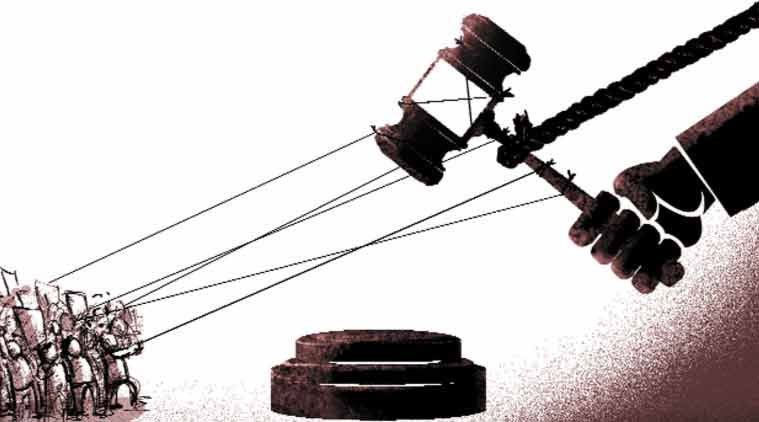The commission’s omissions
Law panel’s recommendations on personal law are selective, ill-judged.

The commission reported that a uniform civil code is “neither necessary nor desirable at this stage”. (Representational)
Submitted to the government by the 21st Law Commission on its last day in office, the Consultation Paper on Reform of Family Law is an uncommissioned document. On June 17, 2016, the government had made a reference to the Commission “to examine matters in relation to uniform civil code” but, finding that the issue is “vast and its potential untested in India”, it has instead brought out this paper suo motu offering a catalogue of unsolicited recommendations for amending personal laws.
The Commission’s reported view that a uniform civil code is “neither necessary nor desirable at this stage”— coming while the stage is set for the next parliamentary election — may be seen as an opportunity lost by the ruling dispensation for whom the promise of uniform civil code has been a manifesto decoration.
There is no reflection of judicial acumen in the paper, which says nothing that has not been said earlier in scholarly works or court judgments. Suffering from legal and factual inaccuracies, it is conspicuously selective in picking up the shortcomings of various personal laws. Being the outcome of a long consultation process, in the fitness of things, it should have annexed a list of consultees and texts of their submissions. There is nothing of the sort in the 192-page document, which abruptly ends with a lament for the lack of legislation on inheritance rights of children born out of wedlock.
On May 17, the Commission’s chairman had phoned to say he wished to consult me on the uniform civil code issue, but the letter received later said my views were required on some specific aspects of Muslim law. Should a Muslim author who has written extensively on the uniform civil code and on the personal laws of all communities be heard only on a few chosen issues of Muslim law? In any case, all my publications were available to the Commission and the document reflects some of my views, avoiding any acknowledgement.
In its section on Muslim law, the Commission has steered clear of topical issues, saying that these are sub judice. As this legal maxim is no impediment to expressing scholarly opinions or making official recommendations for reform, the excuse is a pie in the sky. The apex court itself sometimes solicits the Commission’s views on matters under adjudication and would, I am sure, have liked to know its stand on the barbaric practice of halala and other related issues.
Under the law of civil marriages and modern Hindu law, there are far more serious issues than those the document dwells on. In the Special Marriage Act, a secular law available to all communities, the list of “prohibited degrees in marriage” is copied verbatim from Hindu Marriage Act. The Commission has no objection to it and no change to suggest. Under the “modern” Hindu law acts, if a wife “ceases to be Hindu” her husband need not obtain her consent for giving the couple’s child for adoption; nor should the necessities of life of an aged and infirm mother “ceasing to be a Hindu” be taken care of by her Hindu children. The Commission has no problem with these inhumanities.
Agricultural property, as a state subject under the Constitution, cannot be covered by any central law. A provision under the Hindu Succession Act, when enacted in 1956 pointedly exempted it from its purview. Under the 2005 amendments to the Act, the provision was deleted by way of a legislative routine called weeding out “spent” provisions. The idea was, as explained in a parliamentary committee report, to give the states a free hand to determine the applicability of the Act to agricultural lands. Yet, the deletion is generally misunderstood to mean the automatic extension of the Act to agricultural properties. It is astonishing to find this wrong understanding enshrined in the Commission’s document.
The document thus neither answers the government’s specific reference on the uniform civil code nor makes any unprecedented recommendation for legal reform. It is just one more addition to textbooks available in the market and more confusing than some of them on certain subtle points of law.
The writer is former chairman, National Minorities Commission and member, Law Commission.
For all the latest Opinion News, download Indian Express App
More From Tahir Mahmood
- Prime Minister who was a poetAtal Bihari Vajpayee’s poems are a part of his legacy that must not be ignored...
- Commissions Of InactionNational commissions are white elephants: Expensive and ineffective. ..
- A Legend In His LifetimeTill the end, Justice Rajinder Sachar spoke up for the rights of fellow citizens..








































No hay comentarios:
Publicar un comentario